After searching and not finding an answer to this question I wrote the following extension in Swift 5:
extension UIView {
func makeClearViewWithShadow(
cornderRadius: CGFloat,
shadowColor: CGColor,
shadowOpacity: Float,
shadowRadius: CGFloat) {
self.frame = self.frame.insetBy(dx: -shadowRadius * 2,
dy: -shadowRadius * 2)
self.backgroundColor = .clear
let shadowView = UIView(frame: CGRect(
x: shadowRadius * 2,
y: shadowRadius * 2,
width: self.frame.width - shadowRadius * 4,
height: self.frame.height - shadowRadius * 4))
shadowView.backgroundColor = .black
shadowView.layer.cornerRadius = cornderRadius
shadowView.layer.borderWidth = 1.0
shadowView.layer.borderColor = UIColor.clear.cgColor
shadowView.layer.shadowColor = shadowColor
shadowView.layer.shadowOpacity = shadowOpacity
shadowView.layer.shadowRadius = shadowRadius
shadowView.layer.masksToBounds = false
self.addSubview(shadowView)
let p:CGMutablePath = CGMutablePath()
p.addRect(self.bounds)
p.addPath(UIBezierPath(roundedRect: shadowView.frame, cornerRadius: shadowView.layer.cornerRadius).cgPath)
let s = CAShapeLayer()
s.path = p
s.fillRule = CAShapeLayerFillRule.evenOdd
self.layer.mask = s
}
}
Usage Example:
myView.makeClearViewWithShadow(cornderRadius: 20, shadowColor: UIColor.black.cgColor, shadowOpacity: 0.5, shadowRadius: 30)
